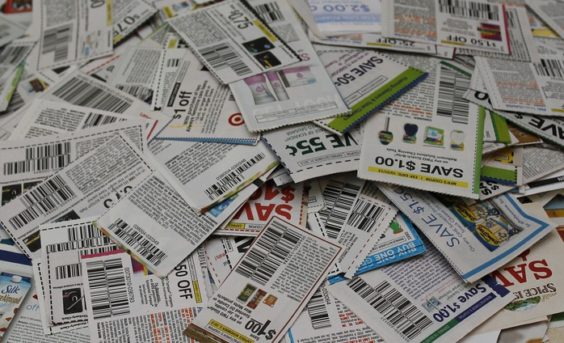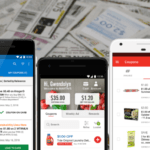
Paper coupons are on their way out, because the new generation of shoppers doesn’t use them. Neither do affluent shoppers, because they have better things to do with their time. And coupons don’t work to influence shoppers’ decisions anyway, so companies really shouldn’t bother offering them anymore.
In reality, none of those statements are true.
In a new report, one of the largest coupon publishers reveals some of the biggest myths and realities about coupons, and finds that coupons are still plenty popular, because they work – for both companies and consumers.
Valassis, the publisher of the RedPlum coupon inserts, has released its annual “Coupon Intelligence Report”. In the “2K16” edition, “Savvy Shoppers Provide Reality Check,” Valassis unmasks several couponing myths, that could help ease your mind if you’re worried coupons may go the way of the dinosaur.
Myth #1: No one uses paper coupons anymore
Digital coupons are on the rise, for sure. But they have a very long way to go before they catch up to good old-fashioned paper coupons. In the meantime, it’s not an either-or proposition – millennial shoppers who are attached to their smartphones and love digital discounts are still perfectly happy to pull out the scissors and cut out printed coupons, just like grandma used to do.
“90% of all consumers across a variety of demographics use print and digital coupons,” Valassis Chief Marketing Officer Curtis Tingle said in a statement. “What may be a surprise is that 83% of the influential millennial generation used the same or more print coupons last year in addition to their increased digital coupon use.”
Overall, 87% of all shoppers surveyed said they use coupons they get in the mail, while 82% use coupons they get in Sunday newspaper inserts.
To be sure, younger shoppers are more into digital than their older counterparts. Only half of those classified as “boomers” use digital coupons, while 81% of millennials do. But that doesn’t mean millennials are ready to ditch paper coupons. “Consumers continue to look for value – no matter the source – and are quick to integrate both print and digital coupons into their shopping plans and purchases,” the report concludes.
Myth #2: Rich people don’t use coupons
The less money you have, the more coupons you use – and vice versa. Right?
Wrong. “Coupon use is not limited by income level, as even affluent shoppers seek value when making purchases,” the report finds.
90% of shoppers with household incomes of over $100,000 say they use coupons. In fact, these shoppers are even more likely to say they will only buy a product with a coupon, than the average shopper is.
And it’s not just about saving money, but spending that money more wisely. “Nearly half of affluent shoppers feel that the money they save with coupons allows them to buy more products at the store,” the report finds.
Myth #3: Couponers aren’t brand loyal
In order to save the most money, couponers are often advised that you have to be willing to switch brands and buy what you can get on sale with a coupon. If you’re set on getting one particular brand, that loyalty is probably going to cost you.
But Valassis found that “smart, brand loyal shoppers use coupons” too, and manufacturers had better take notice. 91% of shoppers who consider themselves brand loyal use coupons, and they’re just as likely as other couponers to shop around for deals. So Valassis argues that companies shouldn’t take these loyal customers for granted.
“Coupons can positively change the perception that brand loyal shoppers have about companies,” the report finds. 43% of brand loyal shoppers say they feel better about companies that offer coupons than those that don’t. “As a result,” the report concludes, “companies still need to incent loyal customers with special offers or risk losing them to other brands or retailers.”
Myth #4: Coupons don’t work
How many times have you heard non-couponers say, coupons are a waste of time, why can’t stores and brands just give me the discount without me having to work for it?
Some companies may be wondering something similar – why should they give away discounts in the form of coupons, if shoppers are just going to buy the same products without them?
Valassis says its findings show that coupons still work, for both companies and consumers.
Are you more likely to buy something when it’s on sale, or when you have a coupon? Valassis’ report cites research that shows coupons influence purchases more than promotions. Browsing through a weekly sales circular may influence some of your decisions, but “the majority of shoppers use coupons to plan shopping trips and decide where to shop,” the report finds. Coupons are more likely to get you to switch brands, or buy something you otherwise wouldn’t. So companies are likely to continue making you “work” for a good deal – because coupons work.
Overall, Valassis calls its report a “reality check, emphasizing that consumers’ zeal for saving money continues. Coupons remain a powerful marketing tool.” Of course, it helps that Valassis is in the business of providing coupons, so it stands to reason that the company would be pro-coupon. But if you’re a couponer who’s heard all the hype about traditional printed coupons being past their prime as a marketing tool – then having a major coupon provider express optimism about coupons’ future, is certainly better than the alternative.










